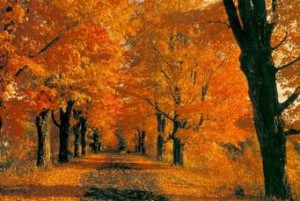
Credit: freeimage.co.uk
Human civilization tends to gravitate toward extremes in many realms.
When it comes to weather, that is for good reason. No reminder is needed that, aside from a pick-ax to the eye, too much hot or cold is the very definition of discomfort. That is why, in our age of increasing climate extremes, and when conspiracy theories abound that President Obama will rename fall “extended summer,” the fall season has seen an amazing increase in its seasonal share price. Now, more than ever, we are in desperate need of mid-range weather.
French-Algerian writer Albert Camus was so fond of the season he called it “a second spring when every leaf is a flower.” Among writers, and especially poets, he was far from alone. Perhaps John Keats put it best when he called it, “season of mists and mellow fruitfulness.”
Fall’s cultural traditions are as vivid as its colors. Hanukah aside, the Christian world is virtually alone in placing a central holiday smack dab in winter. Not so with fall. Thankfulness, gathering the harvest, and beckoning (or reckoning with) the dead, are universal impulses. Japanese Buddhists call it “Ohigan,” a time to spruce up ancestral graves. In China and Vietnam they revel during the mid-season “Moon Festival.” Observant Jews go in for Sukkot, the “Feast of Ingathering at the year’s end.” From Sept. 23 to Dec. 21, the official beginning and end of this year’s fall season, you can find all fall celebration variants here. We will not bother you with Halloween. Your child(ren) have already done that.
All this, and more, is the result in a tilt in the Earth’s axis just slightly away from the sun. The season has two names, autumn and fall, mostly due to our fourteenth-century Latin heritage preferring the former word, coupled with initial confusion in folk taxonomies about what to call the season at all once cultures decided to recognize it in tangible ways apart from harvesting food. That distinction, however, is not nearly so interesting as the geographic distinction between the season’s read and yellow leaves.
In fact, more than other seasons in which we go on vacation or complain about ice, fall tends to bring out the scholar in most people. So if you consider yourself a fall expert, have at it.
